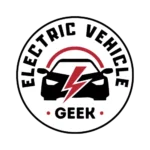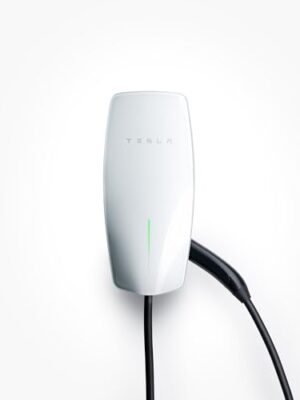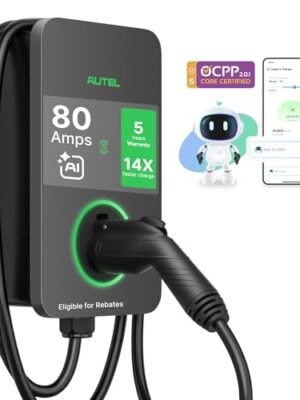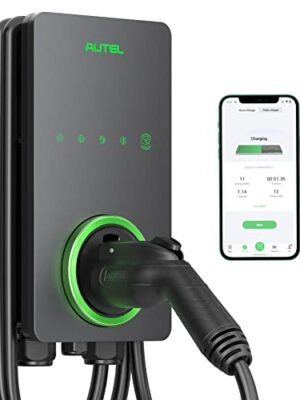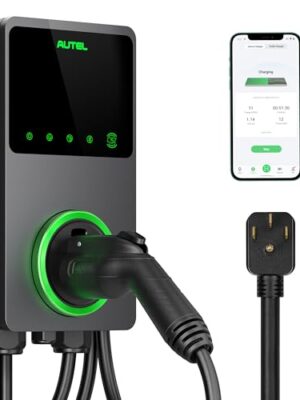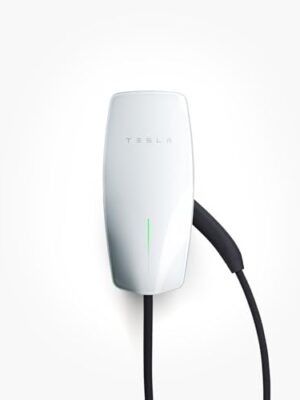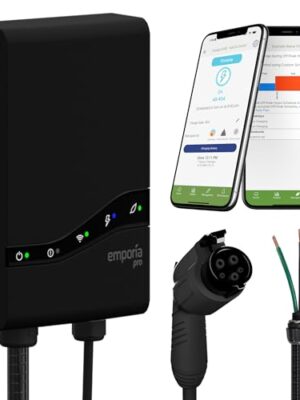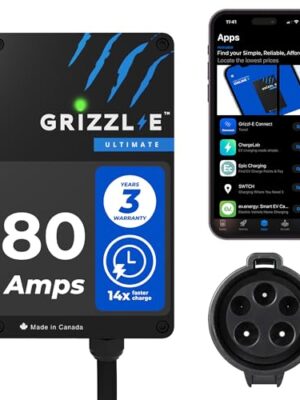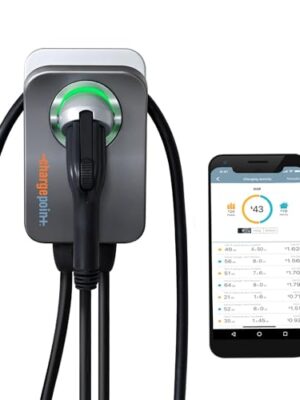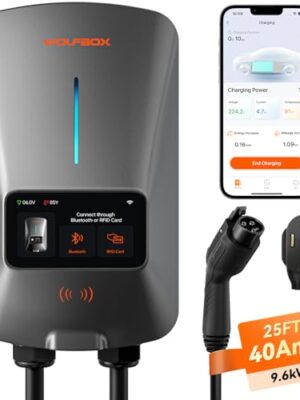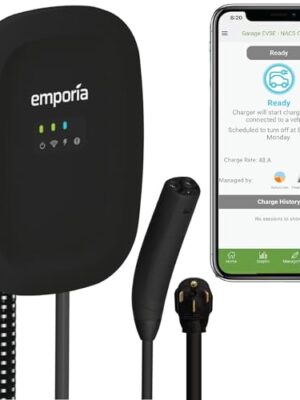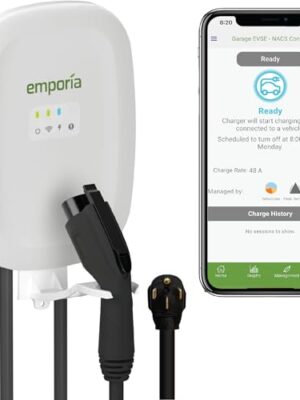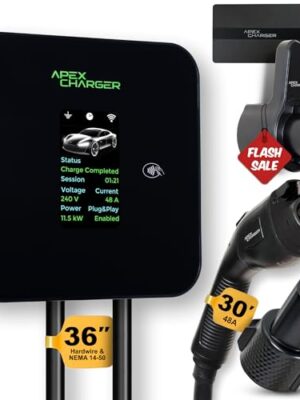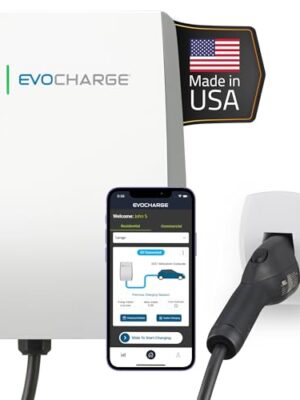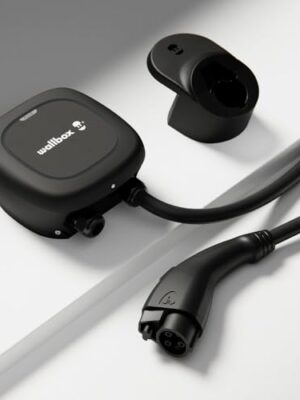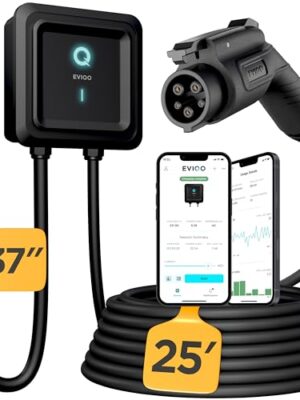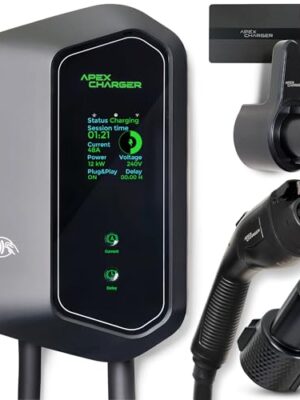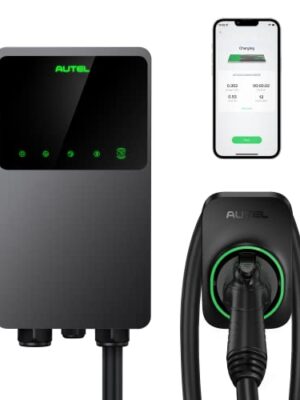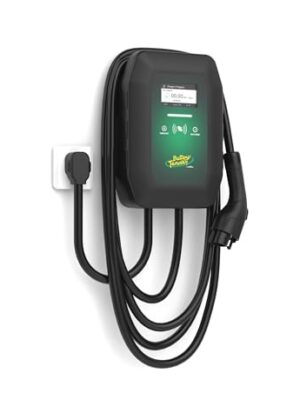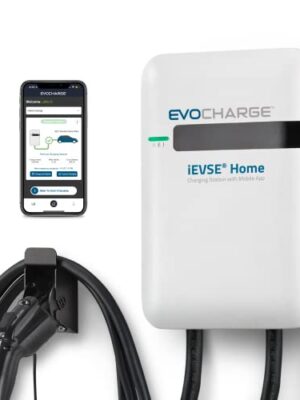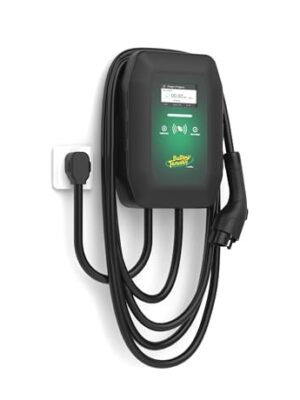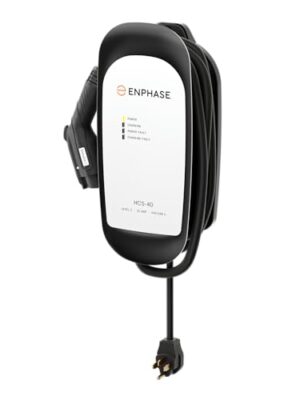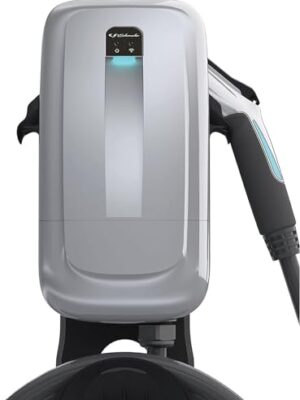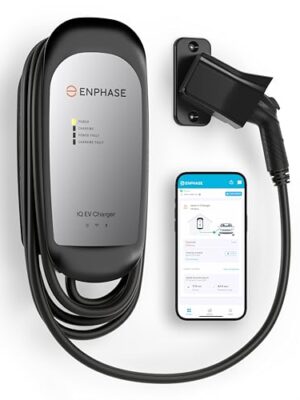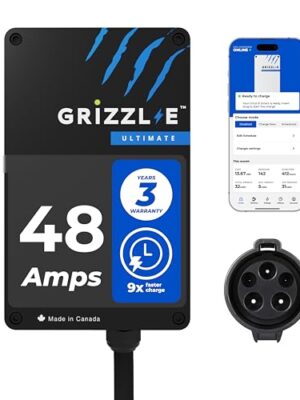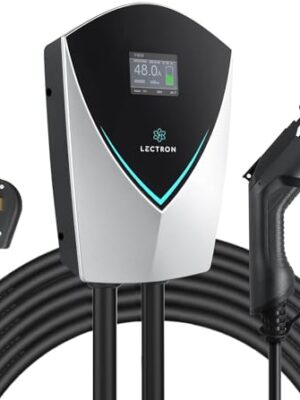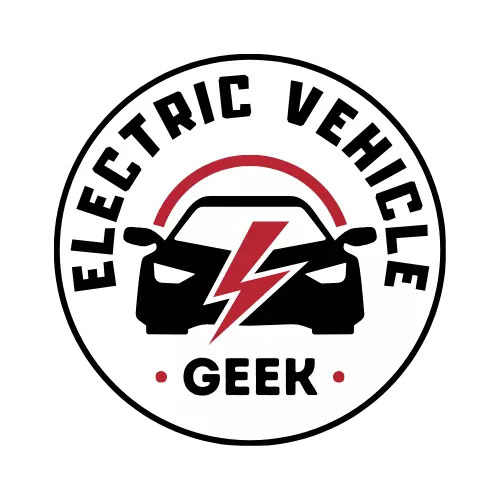Hardwired EV Charger
The best hardwired EV chargers deliver fast, reliable, high-power charging, ideal for continuous load demands. Unlike plug-in options limited to 40 amps on a 50-amp breaker, hardwired chargers support higher amperage, enabling quicker charging.
Below are our top picks, chosen for their smart features, ease of installation, safety standards, and overall performance. These durable solutions integrate seamlessly with home electrical systems, making them perfect for EV owners seeking efficiency and reliability.
Upgrade to a hardwired charger for higher amperage and hassle-free, permanent EV charging.
Showing all 25 results
Hardwired Level 2EV Charger Circuits
Hardwired Level 2 EV chargers must be installed on a dedicated 240V circuit with a double-pole breaker sized for the charger’s maximum continuous load, following the NEC 80% rule. Conductor sizes typically range from 12 AWG to 3 AWG copper for 16-amp to 80-amp chargers, with insulation rated for at least 75°C. GFCI protection may be required based on local code. A licensed electrician should verify proper breaker sizing, conductor type, and full compliance with NEC Article 625.
Best Hardwired EV Chargers
Here’s a summary of the best hardwired EV chargers, handpicked from our comprehensive list of best home EV chargers. Whether you need a Tesla hardwired Level 2 EV charger or a J1772 hardwired Level 2 EV charger, we’ve got you covered.
(Learn more about Level 2 EV chargers)
Check out our picks for the best Tesla hardwired Level 2 EV charger and the best J1772 hardwired Level 2 EV charger from a list of lover 40 EV chargers we tested.
Best Tesla Hardwired Level 2 EV Charger
The Tesla Universal Wall Connector surpasses the Tesla Wall Connector with enhanced features that future-proof your charging setup. Both chargers support indoor and outdoor installation, deliver up to 48 amps, and are compatible with professional installation by over 1,400 Tesla Certified Electricians. However, the Universal Wall Connector offers significant advantages.
First, it features dual-connector compatibility, seamlessly transitioning between the NACS (Tesla connector) and J1772 connectors, making it ideal for Tesla models like the Model S, Model 3, Model X, and Model Y, as well as other North American EVs. In contrast, the standard Wall Connector is exclusive to Tesla’s NACS.
Second, the Universal Wall Connector supports bi-directional EV charging, enabling vehicle-to-home (V2H) or vehicle-to-grid (V2G) applications. This feature is especially valuable for advanced Tesla models like the Tesla Cybertruck, offering future-ready functionality not available in the Tesla Wall Connector.
Lastly, the Universal Wall Connector’s Power-Share function allows up to six chargers to share power efficiently, making it an excellent option for multi-EV households or commercial setups.
The Universal Wall Connector is the superior hardwired Level 2 EV charger for Tesla owners seeking flexibility, compatibility, and future-ready features.
Best SAE J1772 Hardwired Level 2 EV Charger
The Autel Home Level 2 EV Charger is the top-rated SAE J1772 hardwired Level 2 EV charger, surpassing competitors like the Grizzl-E Smart EV Charger, which only supports NEMA 6-50 and NEMA 14-50 installations. This charger also ranks as the second-best Tesla hardwired Level 2 EV charger. However, buyers must choose between NACS or J1772 compatibility at purchase, as it does not provide dual-connector support.
With a power output of up to 12kW and a maximum current of 50A, the Autel Home Level 2 EV Charger delivers fast charging performance, adding up to 37 miles of range per hour. Its charging speed eliminates long wait times, ensuring convenience for busy EV owners. The charger features a durable 25-foot cable that remains pliable even in extreme cold, performing reliably in temperatures as low as -40℃.
This charger offers robust safety and performance capabilities, including overcurrent, overvoltage, undervoltage, and surge protection. It incorporates 20mA ground fault detection with auto-retry functionality to ensure safe operation. The enclosure is rated NEMA 4X, making it suitable for both indoor and outdoor use in a wide range of environments.
Connectivity options include Bluetooth, Wi-Fi, RS485, and Ethernet, ensuring seamless integration with modern smart home systems. Charging modes such as plug-and-charge, RFID authentication, and app control provide flexibility for various user preferences. With its cutting-edge features and reliable design, the Autel Home Level 2 EV Charger is an exceptional choice for EV owners seeking efficiency and versatility.
Looking for Hardwired EV Charger Installation Help?
Check out our Comprehensive Guide on Hardwired EV Charger Installation for step-by-step instructions, wiring diagrams, and everything you need to know to set up your charger safely and efficiently. Perfect for DIY enthusiasts and professionals alike!
Frequently Asked Questions
This FAQ section explains hardwired EV chargers, focusing on their benefits, installation process, and important factors to consider. It covers advantages like faster charging, the need for professional installation, and how to ensure your home’s electrical system is compatible. Get clear answers about key features such as power capacity, compatibility, and safety standards to make an informed choice for your EV charging needs.
What is the difference between a hardwired and a plug-in EV charger?
A hardwired EV charger is permanently connected to your home’s electrical system. A plug-in charger connects to a power outlet, usually a NEMA 14-50. Hardwired chargers offer higher amperage and faster charging, while plug-in chargers provide flexibility and portability.
Which type of EV charger is faster?
Hardwired EV chargers are faster. They typically have higher amperage ratings, such as 48 amps or more, allowing for quicker charging.
Do hardwired EV chargers require professional installation?
Yes, hardwired EV chargers need installation by a licensed electrician. The electrician ensures the charger is properly connected to your electrical system and meets safety standards.
How to check if your electrical panel can handle a hardwired EV charger.
Your electrical panel should have at least 10 amps more capacity than the charger’s requirement. For example, if a charger needs 48 amps, your panel should support at least 60 amps to prevent overloading.
How do I choose between a hardwired and a plug-in EV charger?
Choose a hardwired charger if you need faster charging and are willing to invest in professional installation. Choose a plug-in charger if you want flexibility, portability, and easier installation.
What factors should I consider when budgeting for an EV charger?
Consider the charger’s cost, potential electrical upgrades, and installation fees. Ensure your home’s electrical system can handle the extra load for both hardwired and plug-in chargers.
Should I consult an electrician before deciding?
Yes, consulting an electrician is crucial. They will assess your electrical panel’s capacity and ensure your EV charger is safe and compatible with your home’s system.
